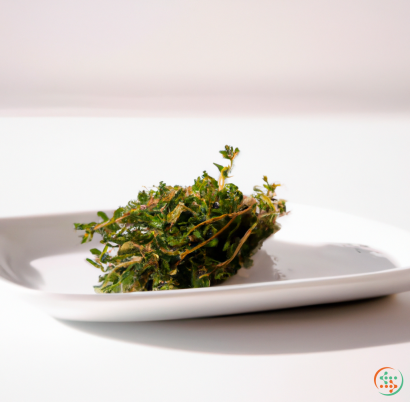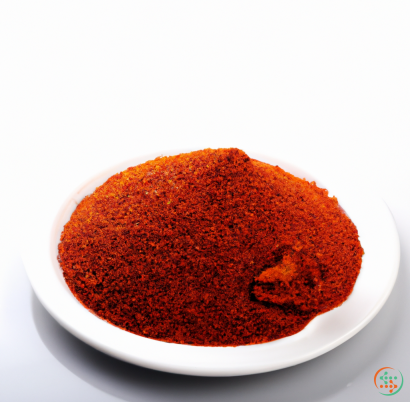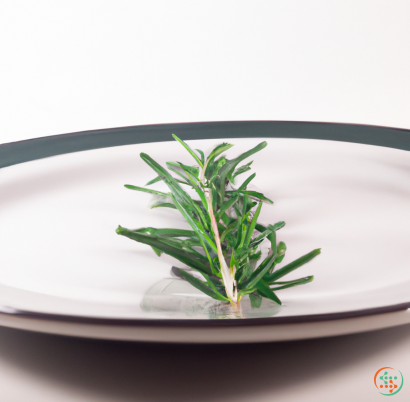Lupin Beans
, how to prepare it and what the health benefits of eating lupin beans
What is a Lupin Bean?
Lupin beans, also known as lupini beans, are prized for their nutritional value and health benefits. They are a legume, a type of edible pulse, that can be found in several regions including Europe and the Mediterranean. They have a history going back centuries and are enjoyed for their flavor and crunchy texture. Lupins are part of the perennial flowering plant species in the Leguminosae family. In the last few decades, lupin beans have become increasingly popular for their use in making high-protein snacks and for being used as an ingredient in breads, soups, and other dishes.
How to Prepare Lupin Beans
The traditional way to prepare lupin beans is to soak them in a solution of water, salt, and lemon juice. This process helps to release some of the bitter-tasting saponins – chemicals that are naturally present in lupin beans. Once this is done, they may be added to stews, salads, dips, or other recipes. They can also be cooked like any other bean, by either boiling them or cooking them in a slow cooker.
Health Benefits of Eating Lupin Beans
Lupin beans are highly nutritious and can be a great addition to any healthy, balanced diet. They are especially known for their high concentration of dietary fiber, which can help keep the digestive system regular and aid in weight loss. When cooked properly, lupin beans also provide a good source of protein, making them an excellent meat substitute for vegetarians and vegans. Moreover, the soluble fibers in lupin beans have been shown to reduce bad cholesterol levels and help with other forms of cardiovascular disease.
Lupin beans are also rich in minerals and vitamins, such as calcium, iron, zinc, and magnesium. This can help support bone health and prevent anemia. Vitamins D, K and B-6 are found in lupin beans, which can help with maintaining a healthy immune system, hormones and metabolism. Lastly, lupin beans are low in calories and fats and are ideal for those looking to lose or maintain weight.
Conclusion
Lupin beans are a great addition to any healthy diet. Not only are they nutritionally dense and full of essential vitamins, minerals and fiber, but they are also quite versatile and can be prepared in many different ways. From soups and salads to dips and more, lupin beans are a tasty and nutritious alternative to other legumes. So if you’re looking to add variety to your meals while also getting the added health benefits of lupin beans, give them a try!
Lupin beans are a nutritious legume valued for its high content of protein, dietary fiber, and phosphorus. These beans are an important component in many traditional diets and are becoming increasingly popular with modern food enthusiasts who are looking for ways to incorporate more plant-based sources of protein into their diets. From seed to plate, lupin’s journey is an incredible one!
Where did lupin beans come from?
Lupin beans are derived from lupin plants, a species of plants that belongs to the same family as garden peas and sweet peas. The scientific name for lupin plants is Lupinus, a word that originates from the Latin word for wolf (lupus), which is believed to be reference to how the plants can deplete soils in the same way wolves do with their prey. Species of the lupin plant were found by humans as far back as ancient Greece, where they were used to fortify livestock’s diet.
Lupin plants are native to North Africa and the Middle East, but they come in a variety of cultivated species and hybrid forms. These plants are known as “grain” lupins because their seeds are an important source of food humans. In Australia, lupins were used as a soil-and-system-renewal crop since the 1890s, and since then, its use has spread to many other countries.
How are lupin beans produced?
In order for humans to enjoy lupin beans, it must go through extensive production processes before getting on the dinner plate. The process begins when lupin plants are planted in suitable soil. Lupin plants can grow in many types of soils, including dry, clayey, and shallow soils, as long as the required nutrients are present.
Once planted, lupin plants need to be watered regularly and remain in an environment that has an average temperature of around 10-day heat. In a suitable environment, the lupin plants will bloom and produce their fruiting bodies within eight to ten weeks after planting.
Once the lupin pods are ripe, they are harvested and the beans are extracted. The resulting beans are cleaned and graded according to size and quality. The beans are then dried in the sun in order to remove moisture, resulting in the perfect product for human consumption.
What are the benefits of eating lupin beans?
No matter what form they take – white, yellow, or red – lupin beans are valuable assets to our diet. They are high in essential minerals and vitamins and are especially high in protein and dietary fiber. One cup of cooked lupin beans provides around 20 grams of protein, which is similar to the amount seen in lean ground beef.
Lupin beans also have numerous health benefits. Their high fiber content helps to keep the digestive system healthy, promote regularity, and prevent constipation, while their protein content helps to keep all the body’s tissues functioning at optimal levels. The bean’s phosphorus content also supports strong bones, teeth, and other body tissues, and its vitamin B content helps us to stay energized throughout the day.
What can be made with lupin beans?
The beauty of lupin beans is that they can be enjoyed in a variety of different recipes. As the beans are pre-cooked and dried, they are easy to incorporate into salads, soups, stir-fries, and curries. Lupin beans are also often used in vegan and vegetarian dishes to substitute meat and dairy products, and they can be used to bulks up burgers and other ground meat recipes.
In countries where they are popular, such as Italy and France, lupin beans are often used to make delicious traditional dishes. In Italy, lupini are served in a brine solution as an appetizer, while in France, lupin beans are enjoyed with honey and butter as part of a classic side dish.
What should you look for when purchasing lupin beans?
When shopping for lupin beans, look for dried lupin beans that are plump and uniform in color. Avoid purchasing any lupin beans that are cracked, broken, or moldy, as these might not have been processed properly and can have a lower nutritional value.
Lupin beans are usually sold in vacuum-sealed bags or cans to ensure maximum freshness, so check the expiration date before you buy. If the beans have passed their expiration date, it’s best to avoid them. Lupin beans can also be found in some larger supermarkets, health stores, powdered form, or as ready-to-eat snacks.
Conclusion
Lupin beans are an important source of plant-based protein as well as essential minerals and vitamins. From seed to plate, lupin’s journey is an incredible one, with beans going through a thorough production process before they get to the dinner plate.
Now that you know more about lupin beans, why not give them a try? We’re sure you’ll be impressed by their versatility and flavour.
| Vitamin C | 0.0011 grams | |
| Vitamin B1 | 0.13 mg | |
| Vitamin B2 | 0.05 mg | |
| Vitamin B3 | 0.5 mg | |
| Vitamin B5 | 0.19 mg | |
| Vitamin B6 | 0.01 mg | |
| Vitamin B9 | 0.059 mg |
| Calcium | 0.051 grams |
Daily Value 1.3 g
|
| Iron | 0.0012 grams |
Daily Value 0.018 g
|
| Magnesium | 0.054 grams |
Daily Value 0.4 g
|
| Phosphorus | 0.128 grams |
Daily Value 1.25 g
|
| Potassium | 0.245 grams |
Daily Value 4.7 g
|
| Sodium | 0.004 grams |
Daily Value 2.3 g
|
| Zinc | 0.00138 grams |
Daily Value 0.011 g
|
| Copper | 0.23 mg |
Daily Value 0.9 mg
|
| Manganese | 0.68 mg |
Daily Value 0.0023 g
|
| Selenium | 0.0026 mg |
Daily Value 0.055 mg
|
| Tryptophan | 0.125 grams | |
| Threonine | 0.573 grams | |
| Isoleucine | 0.695 grams | |
| Leucine | 1.181 grams | |
| Lysine | 0.832 grams | |
| Methionine | 0.11 grams | |
| Cystine | 0.192 grams | |
| Phenylalanine | 0.618 grams | |
| Tyrosine | 0.585 grams | |
| Valine | 0.65 grams | |
| Arginine | 1.669 grams | |
| Histidine | 0.443 grams | |
| Alanine | 0.558 grams | |
| Aspartic Acid | 1.669 grams | |
| Glutamic Acid | 3.739 grams | |
| Glycine | 0.663 grams | |
| Proline | 0.635 grams | |
| Serine | 0.805 grams |
| Total Sugars | 0.131141 grams |
per 100g
|
| Palmitic acid (16:0) | 0.22 grams |
|
| Stearic acid (18:0) | 0.1 grams |
|
| Total Saturated fatty acids: | 0.32 g | |
| Erucic acid (22:1) | 0.03 grams |
|
| Oleic acid (18:1) | 1.07 grams |
|
| Palmitoleic acid (16:1) | 0.01 grams |
|
| Gadoleic acid (20:1) | 0.08 grams |
|
| Total Monounsaturated fatty acids: | 1.19 g | |
| Linolenic acid (18:3) | 0.13 grams |
|
| Linoleic acid (18:2) | 0.6 grams |
|
| Total Polyunsaturated fatty acids: | 0.73 g | |







